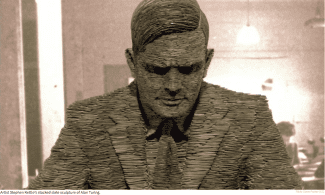There was a chance that many in the UK would wake up this morning with a little more respect from Parliament, but alas a filibuster and a debate between whom should receive forgiveness and a pardon first or at all, the living or the dead?
A bill that would have wiped clean the criminal records of thousands of gay men has fallen at its first parliamentary hurdle.
The private member's bill would have pardoned all men living with UK convictions for same-sex offences committed before the law was changed.
There were emotional scenes with one MP fighting back tears during his speech.
The government, which has its own plans for posthumous pardons, "talked out" the bill, which will not now go ahead.
Minister Sam Gyimah spoke for 25 minutes, reaching the time limit allotted for the debate.
There were shouts of "shame" and "shameful" from angry MPs as the seconds ticked down and proceedings came to an end. – BBC.com
In the video below, you can hear Justice Minister Sam Gyimah being heckled by MPs during Turing Bill debate.
Head over to BBC.com for the whole story, where they state the government proposed a bill where the convicted that have died would receive pardons, but the living would need to go through a "disregard process to clear their names." Officials were worried that some of the living may try to take advantage of the blanket pardon and may lead to some offenders being cleared of crimes that are truly still crimes.
A 2015 petition calling for pardons for the estimated 49,000 men affected by convictions for consensual gay sex was signed by over half a million people, including the actor Benedict Cumberbatch, who played Turing in the 2014 film The Imitation Game.
Another signatory was Turing's great-niece Rachel Barnes. Speaking to BBC News in 2015, Ms Barnes said: "We've always considered that it is totally unjust that only Alan was given a pardon.
"There were 50,000 other homosexuals who were convicted and not given a pardon. We would really like this to be put right now." – BBC.com
Should priority be given for the living or the dead?
Do you think the objections to the bill that some may try to sneak under the blanket pardons are valid?
How would the Turing Bill work?
The bill is intended to set aside only convictions made under:
- Section 12 of the Sexual Offences Act 1956 (buggery)
- Section 13 of that act (gross indecency between men)
- Section 32 of that act (solicitation by men), or
- Section 61 of the Offences against the Person Act 1861 or section 11 of the Criminal Law Amendment Act 1885.
And it would do so only under the conditions that:
- The other person involved at the time the act was committed was a consenting partner aged 16 or above
- The act would not constitute an offence under section 71 of the Sexual Offences Act 2003 (sexual activity in a public lavatory)
- The act in question would not still be illegal for any other reason. – BBC.com
h/t: BBC.com


